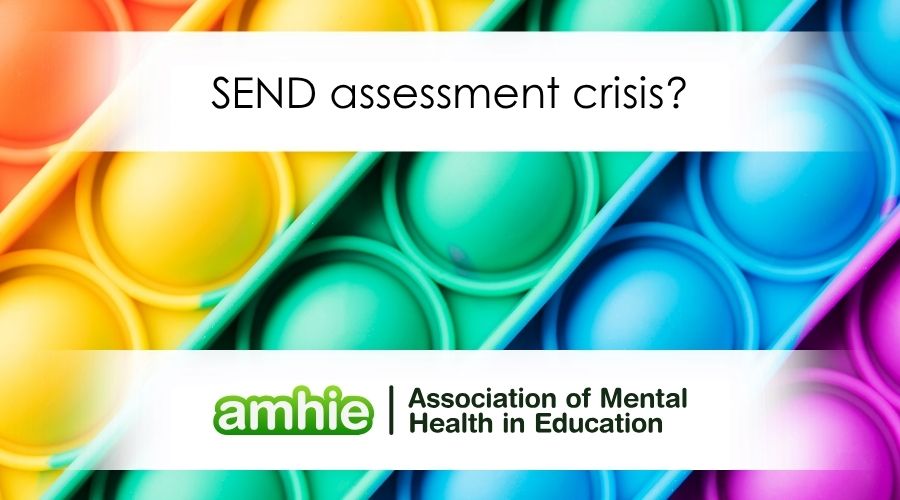
The SEND assessment crisis and the Budget 2025.
The DfE have today (28/11/2025) released an article in their blog feature entitled “Autumn Budget: what is the government doing to improve outcomes for children with SEND?”
“The government is making changes to the Special Educational Needs and Disabilities (SEND) system. These changes aim to improve how children with SEND receive support.
It’s clear the SEND system is in dire need of reform. It is failing children and families at every turn, where outcomes for young people are nowhere near good enough.
Our reforms are about improving outcomes for young people, but speculative projections from the Office of Budget Responsibility (OBR) are causing confusion about how these reforms will be funded.”
The Treasury has made clear that the costs will be absorbed by the overall government budget. Funding will be determined at the next Spending Review, which will take place in 2027.
The SEND Assessment Crisis: What Are We Doing Now?
It’s an undeniable truth: the current Special Educational Needs and Disabilities (SEND) system is in dire need of reform. For too long, the system has been failing children and families at every turn, leading to outcomes that are simply nowhere near good enough for our young people.
The government is now making a definitive mission to transform the SEND system, focusing relentlessly on improving support and long-term outcomes. While this commitment is clear, recent speculative projections from the Office of Budget Responsibility (OBR) have unfortunately caused confusion about the future of funding. Here is everything you need to know about where we stand, and what we’re doing now.
Dispelling the Funding Confusion: Where Will the Money Come From?
The question of funding is often the most pressing, and we want to clear up any widespread misunderstanding.
While the Office for Budget Responsibility (OBR) published projections about SEND costs alongside the recent Budget, these were hypothetical illustrations. Crucially, their suggestion that funding could be taken from the core schools budget is fundamentally wrong.
It will not.
The OBR’s projections do not account for the detail of our comprehensive reforms. The Treasury has made it unequivocally clear that all future SEND costs will be absorbed by the overall government budget. Funding will be determined at the next Spending Review, scheduled for 2027.
Furthermore, we are addressing the burden on Local Authorities (LAs). While LAs currently cover these costs (using the Dedicated Schools Grant statutory override), from 2028 onwards, future costs will be managed, in full, within the overall government budget. Local Authorities will no longer need to cover SEND costs from their general funds after the end of the 2027-28 financial year.
The Path to Reform: Our Five Core Principles
Our reforms are being designed through a period of co-creation, working closely with children, parents, teachers, health teams, and experts to ensure the final plan is effective and sustainable. This transformation is based on five guiding principles:
- Early: Children should receive the support they need as early as possible.
- Local: Children and young people with SEND should be able to learn at a school close to their home, alongside their peers.
- Fair: Every school should be properly resourced and able to meet common and predictable needs.
- Effective: Reforms must be grounded in evidence and best-practice.
- Shared: Education, health, and care services must work in partnership with one another, local government, families, and experts to deliver cohesive support.
Action Now: What’s Already Underway?
While the full plan will be published early next year in the Schools White Paper, we are not waiting to act. We have already started making changes to improve the system:
- Creating 10,000 more specialist places in mainstream schools to ensure more children can learn close to home.
- Providing more training for teachers to better equip them to support diverse needs in the classroom.
- Introducing earlier intervention for critical speech and language needs.
- Placing SEND professionals in Best Start Family Hubs across every local area to integrate support.
What This Means for Schools and Families
For parents, our reforms mean you won’t have to fight for the support your child needs. We are protecting effective provision that is already in place, and we will always uphold the legal right to additional support for children and young people with SEND.
For schools, any changes we make will be paired with the expectation that mainstream schools are properly equipped and ready to welcome all pupils, including those needing additional support. This commitment is supported by significant investment: school budgets rose by £3.7 billion this year and will rise by a further £1.7 billion next year.
We will continue to work closely with families, teachers, and local authorities as these plans are developed. The full, detailed plan for transformation will be set out in the Schools White Paper early next year.
Get discounts, resources, training and more to support your setting with AMHIE Membership

Don’t navigate the crisis alone! Joining AMHIE as a member instantly connects you to essential updates on DfE policy to Reduce Risk and Stress. Eliminate professional isolation by tapping into Expert Support and shared insights from colleagues, gaining the Clarity and Direction needed for best practice. Get up to 30% off of training costs and save money in your budget with training included in full membership.
Ready to connect with a supportive community and stay ahead of policy? Get immediate access to guidance and peer support—sign up for your AMHIE membership today!
References/Further Reading:
N8 Research Partnership. Addressing the special educational needs and disabilities (SEND) assessment and support crisis.
National Education Union. SEND in crisis.
RCSLT. ‘Solving the SEND crisis’ published
UK Parliment. Solving the SEND crisis: report calls for culture shift and funding to make mainstream education genuinely inclusive
IFS. England’s SEND crisis: costs, challenges and the case for reform
